Born in Portland, Maine in 1945, Tom Allen graduated from Bowdoin College in 1967 before going to Oxford, where he completed a M.Phil. in Politics in 1970. Four years later he graduated from Harvard Law School. After a successful legal career in Portland for almost two decades, he was elected to Congress representing Maine’s 1st congressional district. He lost a bid for the U.S. Senate in 2008. In 2009 he became the president and CEO of the Association of American Publishers. He is the author of Dangerous Convictions: What’s Really Wrong with the U.S. Congress. This narrative is excerpted from an interview with the Rhodes Trust on 14 December 2023.
Tom Allen
Maine & Wadham 1967
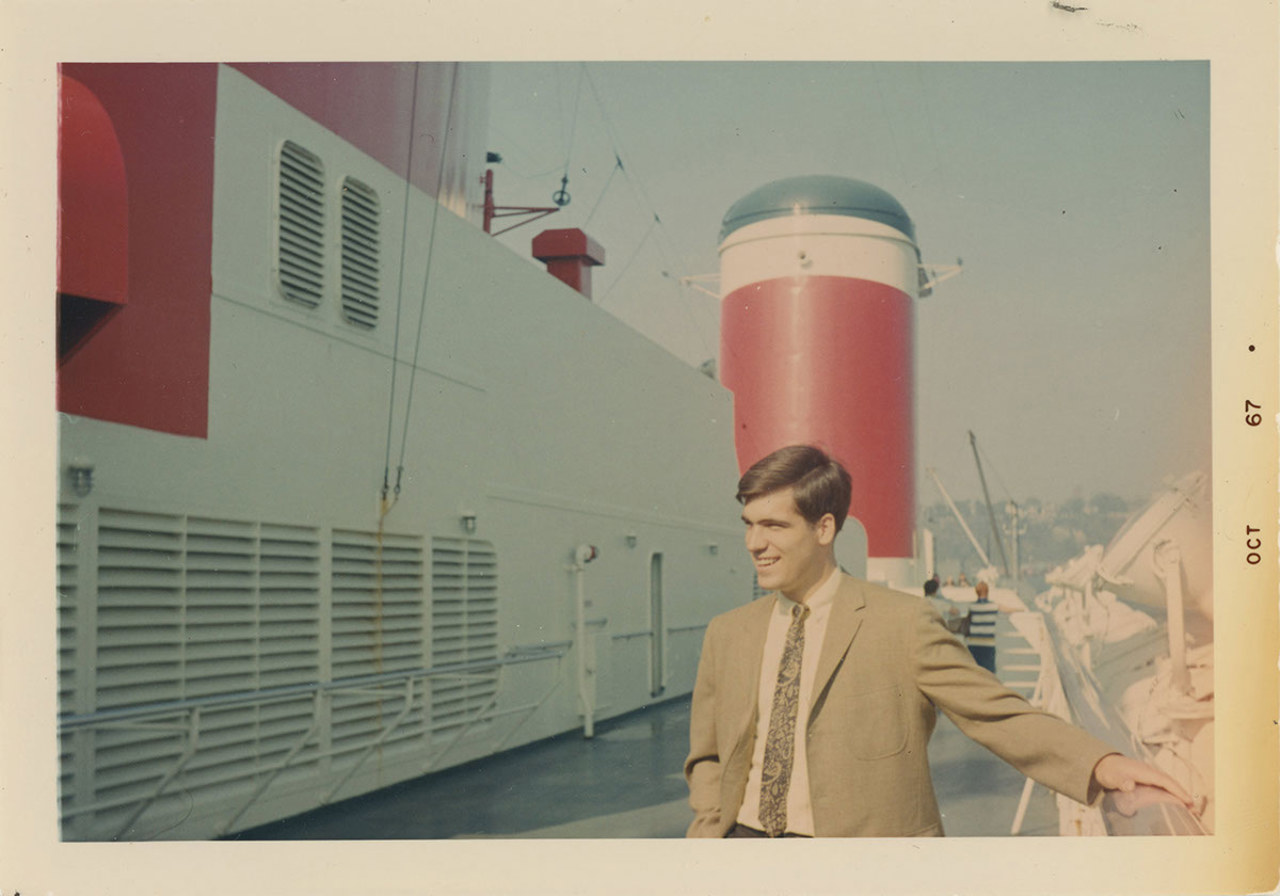
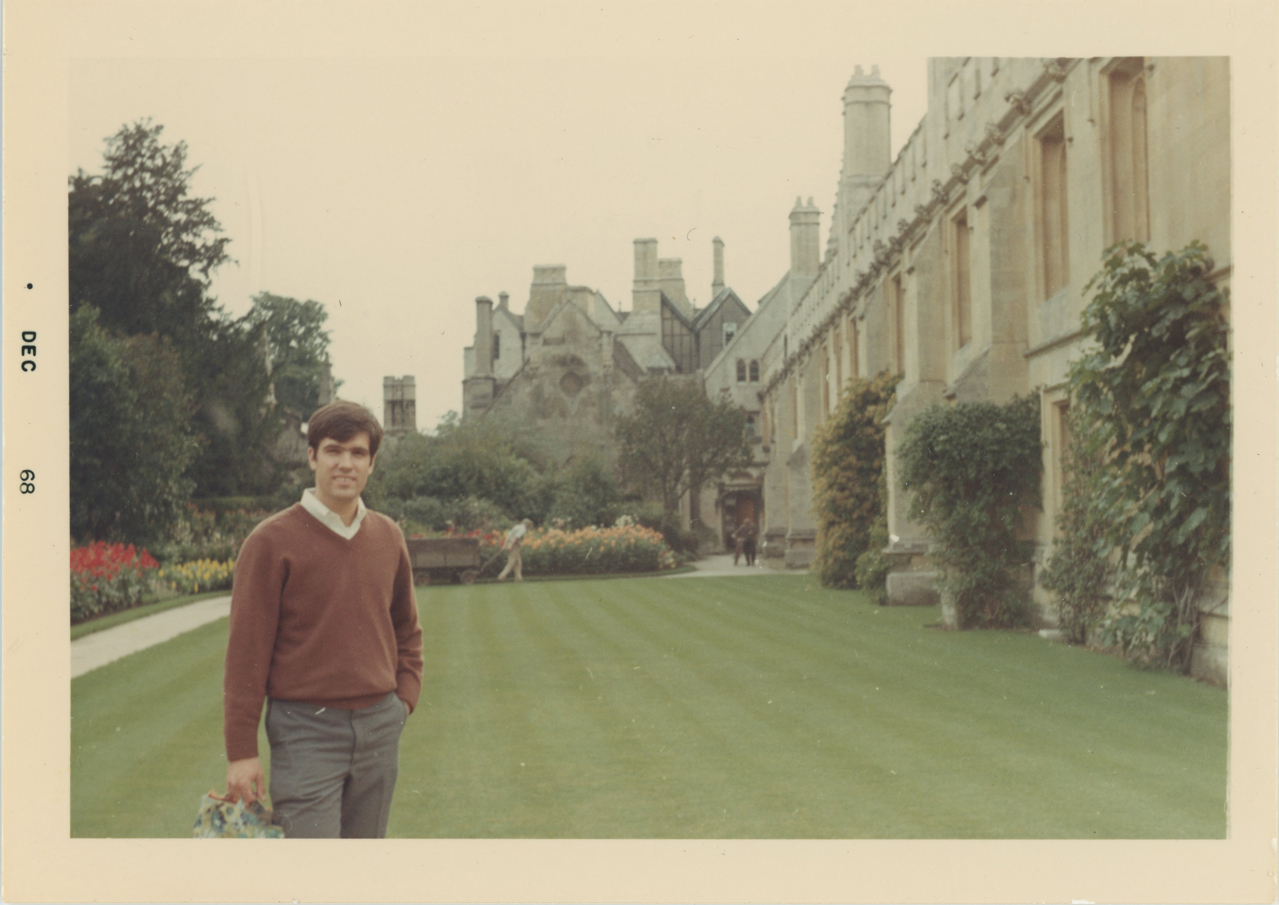
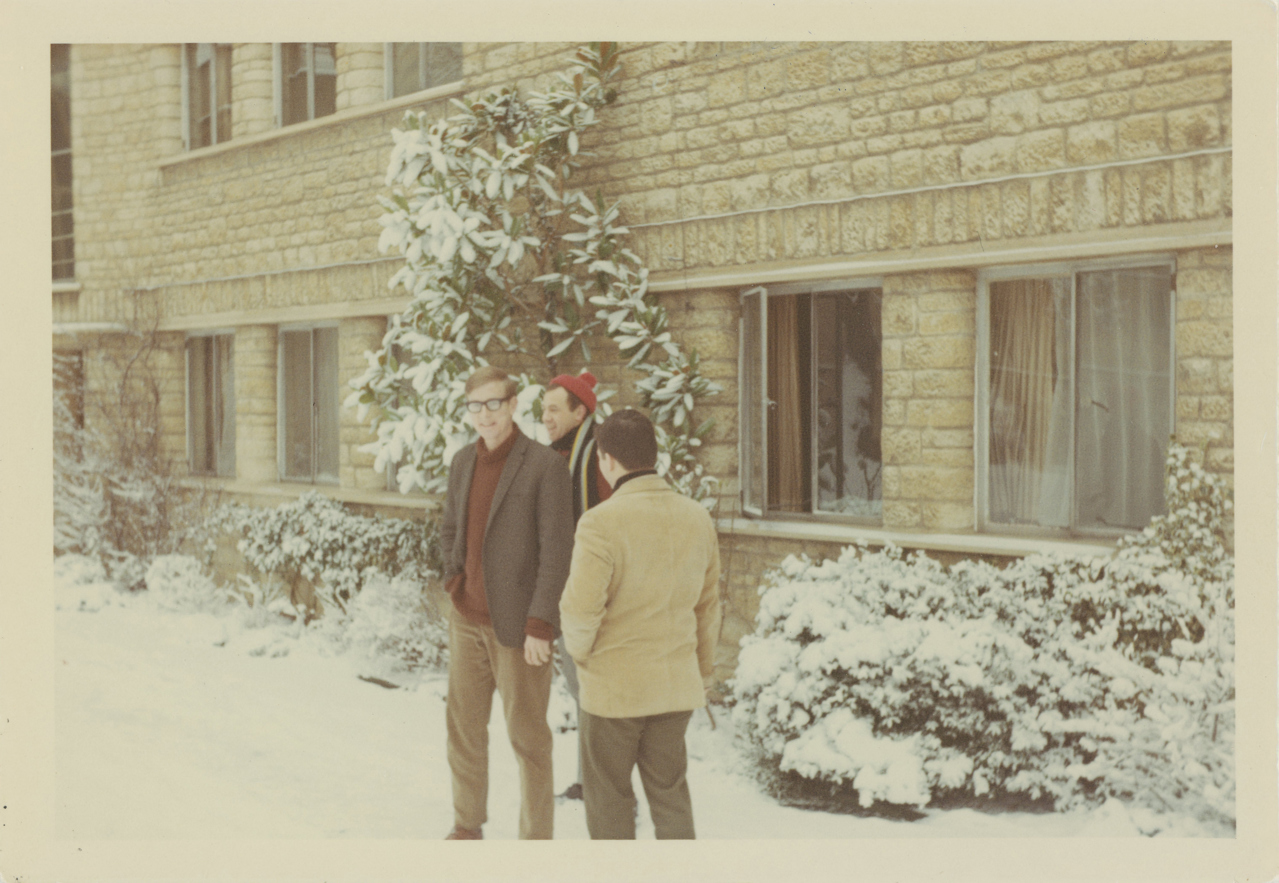
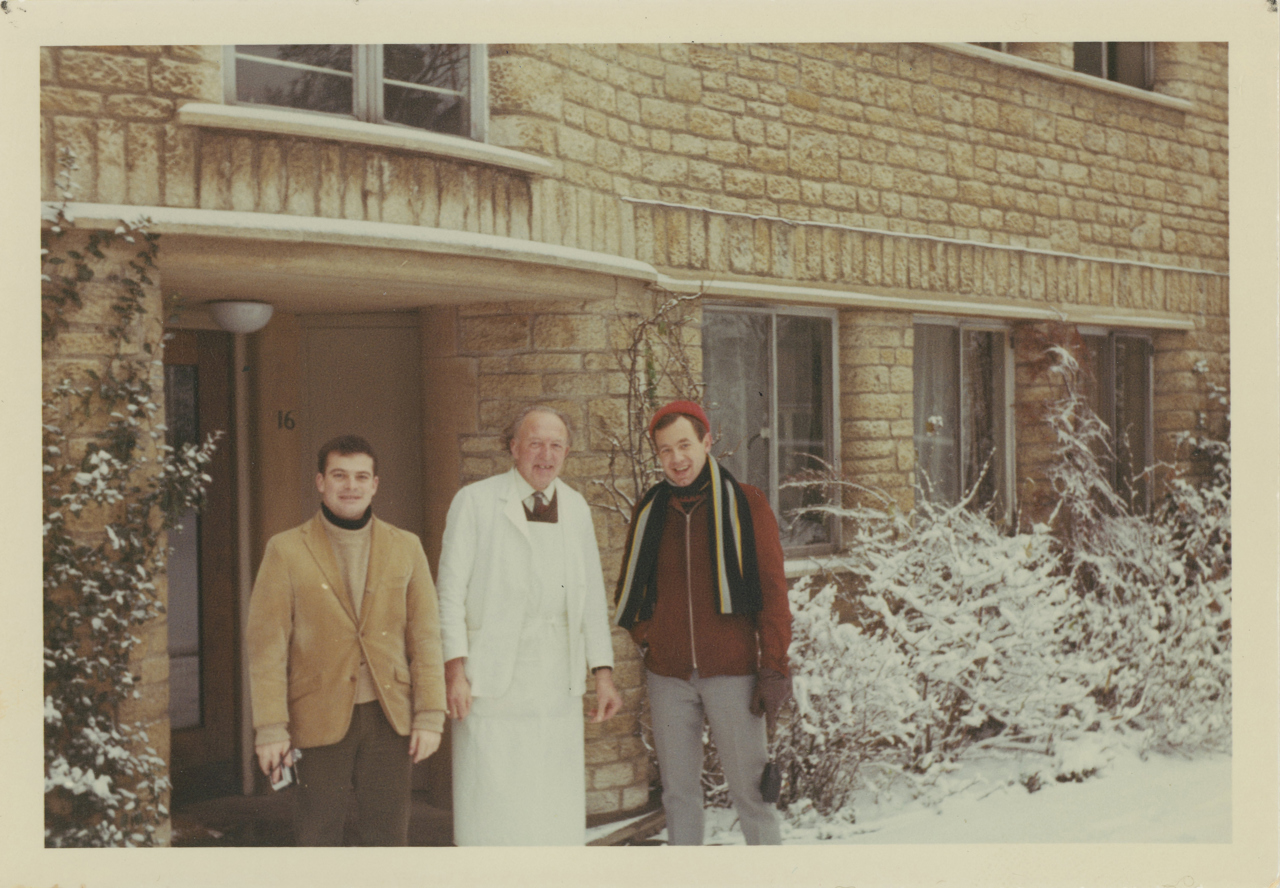
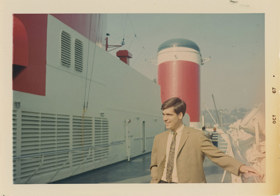
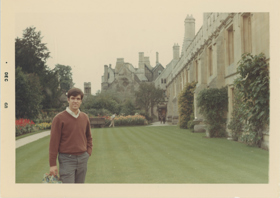
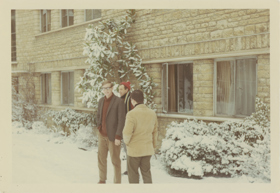
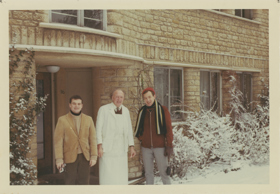
‘I felt in many ways blessed’
Portland has always been my home. My family here goes back at least four generations. I had a very happy childhood, with a close-knit family. I had 15 cousins in the Allen clan. We would all get together, especially in the summer, and play baseball in the hayfield at my grandparents’ old summer farm. My parents bought a similar old farm and we kids had lots of time by ourselves to play, read books, go fishing or wander in the woods and fields.
I felt in many ways blessed; I had parents who were educated and active in community affairs. My mother was very active in the League of Women Voters. My father was a lawyer in Portland and involved in various civic activities. At school, our teachers were very good and committed to their students. I have to say that school came easily to me. I do remember, though, that when I got a B in 7th grade math, my father responded appropriately, but surprisingly. He said, ‘that’s a very good grade for most of the kids, but it’s not your best effort.’ I responded as he hoped I would.
On applying for the Rhodes Scholarship
I went to Bowdoin College because I thought the small college experience would work for me, and it was absolutely the right decision. I expected to go on to some graduate school and that would provide a university, perhaps Ivy League, experience. In high school and at Bowdoin I played football and ran middle distances in indoor and outdoor track, all of which I enjoyed. I’d met my future wife, Diana, when we were in the 7th grade, and while I was at Bowdoin, she was at Wellesley, so we travelled in one direction or the other to be together on some weekends.
Bowdoin’s first president had described its mission as a commitment to the common good not just the individual benefit of its students. I never thought of applying for the Rhodes
Scholarship until an exchange student suggested my junior year that others thought I should apply. Bowdoin’s overt commitment to the common good lined up with the mission of the Rhodes Trust to be the best person for the world’s fight. I had led my Bowdoin fraternity to drop out of the national because of its racially exclusionary practices.
After I had been selected for the Rhodes, I wrote with two other seniors (at the request of the President of the College), a 40-page critique of the fraternity system for the Governing Boards. In short, the example of my parents and my college experience led me to conclude that if you see something that needs to be fixed, you should just go fix it. Maybe what you propose will work, and maybe it won’t, but if it doesn’t, at least you’ll have tried.
‘Friendships that have lasted our entire lives’
At Oxford, we made friendships that have lasted our entire lives. Diana and I were married in 1968 and we became friends with other Rhodes couples. Later, when I was working in Washington, we had a network of Oxford friends who were also working there.
Eventually, our Rhodes class of 1967 started having our own reunions, and we still do it every 2-3 years. My classmates, Kent Price (Montana & Pembroke 1967) and Steve Oxman (New Jersey & New College 1967) in particular, believed that everyone in the class should contribute to the Trust. We did it; every member of the US class has made a contribution to the Rhodes Trust for several years now. We hope it inspires other classes to match us.
My academic work at Oxford included political theory, comparative government and African politics. After I completed my degree requirements, Diana and I spent 6 weeks in East Africa. It was fascinating. Travel was an important part of the Rhodes experience for me. We went to Paris for one vacation, Spain for another, and within the UK from Scotland to Devon and Cornwall. It was idyllic, in some ways, but a tough time in the outside world, especially in the spring and summer of 1968. For every American at Oxford, the war in Vietnam was a dominant concern. Some left Oxford and some were called up. In the end, I was not drafted, because I had a recurring shoulder injury. That made sense from a military point of view, but I know it was a personal break for me.
After Oxford, for one year I got a job with Maine Sen. Ed Muskie. I worked on his re-election campaign in Maine and then went to Washington as congressional staff and then on his presidential campaign.
After graduating from Harvard Law School in 1974 I joined the Portland law firm of Drummond, Wescott and Woodsum. I enjoyed working (for 19 years) with a committed, accomplished group of lawyers and friends. I did keep signing up for public-facing work done by public or non-profit organizations. I was elected to the Portland City Council in 1989 and during my term as Chair of the Council (“Mayor”), Bill Clinton (Arkansas & University 1968) called for advice about an invitation he had received from the Portland Democratic organization to attend an event in Maine. I’d known him at Oxford and I’d seen then that he was absolutely gifted at connecting with other people. He flew to Maine to attend the event and afterwards, I gathered a group of people together to create the Maine Clinton for President campaign. From that, the Clinton campaign in Maine took off. I was the chair.
‘Trying matters, a lot’
Bill was elected in 1992. I ran for Governor of Maine in 1994 and lost in the Democratic primary. Two years later I was elected to Congress. When I arrived in Congress, I had no doubt that being a Rhodes Scholar gave me a certain amount of recognition. At the same time, it helped satisfy my need to do something for the wider world. The first lesson you learn in Congress, if you’re paying attention, is that you must try many things in order to have some success. Well, I had a great staff and we were able to move some important issues forward. My bill to authorize Medicare to negotiate prescription drug prices for its beneficiaries became a hot topic in the 1998 congressional elections and the presidential race in 2000. In later sessions of Congress I made progress on bills to authorize comparative effective research for prescription drugs and medical devices, for conduct research into ocean acidification, and to improve national fishing regulations. As one of my staffers put it, we became influential and expert, because we cared about both the fishermen and the fish.
Productive work in politics and legislation is about trying stuff. Trying matters, a lot. That’s how you make change. Teddy Roosevelt said once, ‘Do what you can, with what you have, where you are.’ That applies to the smallest town and the biggest country.
“As my two eyes make one in sight”
I’m retired now, but I’ve come full circle back to things that were so important in my childhood. I’m the chair of the board for the Maine Woodland Owners, for example, which works to preserve healthy forests and to create habitat for wildlife and for people. Diana and I now own my parents’ old farm out in Sebago, and we spend as much time there as we can. It’s my favorite place on Earth. I think that in this high-speed, instant life, we all need more connection with the outdoors.
Looking back at my career, I’ve been fortunate to have a good deal of success (despite some failures along the way). Focusing on the common good has been the thread running throughout all of my work. At Bowdoin, I majored in English literature, and the poets I studied – Robert Frost, William Butler Yeats, T.S. Eliot, Wallace Stevens – have been a lifelong gift. I still have a passage from Robert Frost on my wall, from ‘Two Tramps in Mud Time’:
But yield who will to their separation,
My object in living is to unite
My avocation and my vocation
As my two eyes make one in sight.
Not everybody can do it, but I believe it’s a worthwhile goal, and one I think I have been lucky enough to achieve.
